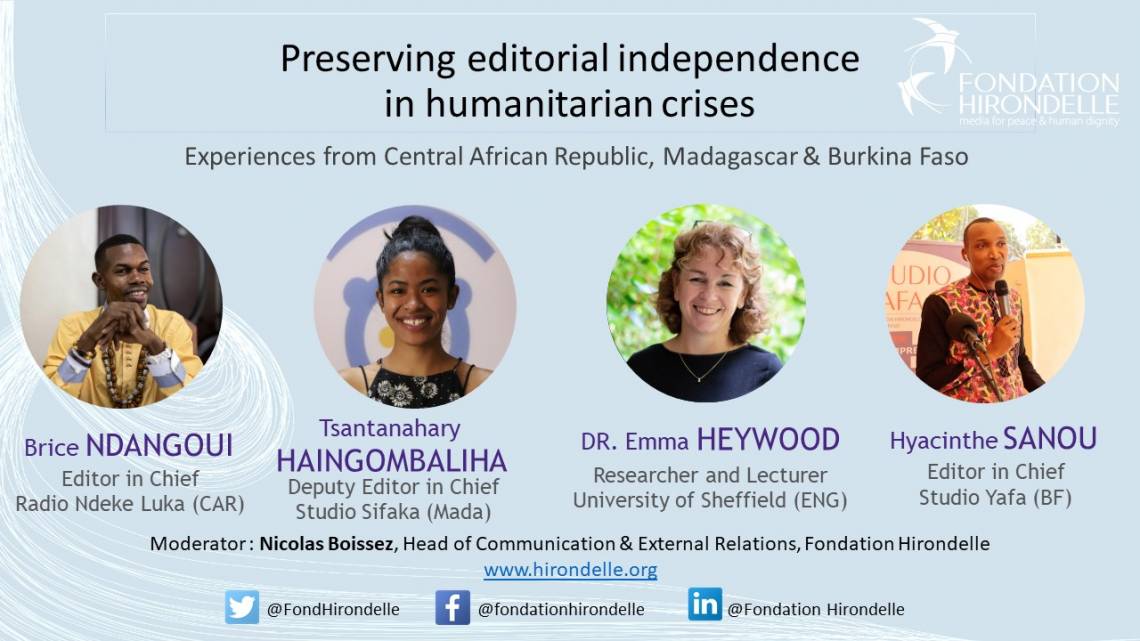Fondation Hirondelle is in Arusha, taking part in the Africa Media Convention, organised by UNESCO for Press Freedom Day from 2 to 5 May. We are organising a panel on Monday 2 May on editorial independence in the context of humanitarian and security crises, with testimonies from our colleagues in the Central African Republic, Madagascar and Burkina Faso, as well as from Dr. Emma Heywood from the University of Sheffield.
In 2021 the world saw the highest level of humanitarian need for decades. Conflict, climate change and the COVID-19 pandemic took a heavy toll. In Africa, there were significant rises in food insecurity, extreme poverty and forced displacement. When, as in the Sahel, several crises have accumulated, the difficulties for populations have been all the more complicated to overcome. This general situation has also proved to be a breeding ground for misinformation and disinformation.
In the face of these multiple and interconnected crises, how can local media and local journalists preserve their editorial independence and professionalism in contexts of multiple and interconnected crises? What is the impact of growing insecurity and disinformation on the work of local journalists in the Sahel and Central Africa? How to continue providing reliable news to the population in such environments?
The panel we are organising and will be held on Monday 2 May from 2pm aims to share the experience of Fondation Hirondelle, with the participation of Hyacinthe Sanou, editor-in-chief of Studio Yafa (Burkina Faso), Tsantanahary Haingombaliha, deputy editor-in-chief of Studio Sifaka (Madagascar) and Brice Landry Ndangoui, editor-in-chief of Radio Ndeke Luka (Central African Republic). Without claiming to have ready-made solutions, this discussion will share experiences, tools and practices that can be applied to other similar crisis contexts on the African continent.
The discussion will also be enriched by the contribution of researcher Emma Heywood. She recently took part in a joint study by the University of Sheffield and the University of Ouagadougou which analysed the impact of misinformation and disinformation on internally displaces people (IDP) and also looked at their information needs in the context of Burkina Faso.
Tools and methodologies will be shared with participants, and short videos will show the impact of media programmes and will give a voice to populations affected by these local crises.
To follow the panel remotely, register on this link.
